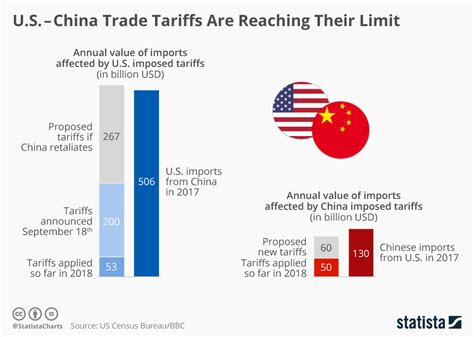
Homes in Italy are being offered for as little as the price of an espresso, tempting Americans with the dream of affordable vacation properties amidst picturesque landscapes and rich culture, but the reality involves significant renovation commitments and potential bureaucratic hurdles.
Several Italian towns, grappling with declining populations, have launched initiatives selling houses for symbolic prices, typically €1 (around $1.07 USD), in an effort to revitalize their communities. These programs, primarily located in regions such as Sicily, Sardinia, and Abruzzo, attract attention with the promise of incredibly cheap real estate, offering a stark contrast to the soaring housing costs in many parts of the United States.
However, these bargain properties come with strings attached. Buyers are generally required to commit to renovating the often-dilapidated buildings within a specified timeframe, usually three years, and must front a security deposit, which can range from €1,000 to €5,000, to ensure compliance with the renovation agreement. Failure to complete the renovations can result in the forfeiture of the deposit.
“You’re not just buying a house for one euro,” explains an expert on Italian real estate. “You’re buying a project, a commitment to the community, and a lot of potential headaches.”
The allure is undeniable. For Americans priced out of their domestic housing market or seeking an investment opportunity abroad, the prospect of owning a home in Italy for a nominal sum is understandably attractive. The low initial purchase price can free up capital for renovations, potentially resulting in a stunning vacation home or rental property for a fraction of the cost of comparable properties in the US or other popular European destinations.
Beyond the financial considerations, the appeal of these Italian towns lies in their authentic charm and slower pace of life. Many of these communities boast stunning natural beauty, rich history, and a vibrant local culture, offering a unique opportunity to escape the hustle and bustle of modern life. The potential to become part of a close-knit community, experience genuine Italian traditions, and enjoy a more relaxed lifestyle is a significant draw for many prospective buyers.
However, navigating the Italian bureaucracy, dealing with local contractors, and understanding the intricacies of Italian property law can be challenging, especially for foreigners. Language barriers, cultural differences, and the complexities of the Italian legal system can add layers of difficulty to the renovation process.
The availability of €1 homes is not a new phenomenon, with various Italian towns having launched similar initiatives over the past decade. Sambuca di Sicilia, Ollolai in Sardinia, and Mussomeli in Sicily are just a few examples of towns that have garnered international attention for their low-cost housing schemes. While the specific terms and conditions of each program vary, the underlying goal remains the same: to attract new residents, revitalize the local economy, and preserve the cultural heritage of these struggling communities.
These initiatives are typically targeted at individuals who are willing to invest time, money, and effort into restoring the properties and contributing to the local community. They are not get-rich-quick schemes, but rather long-term projects that require careful planning, dedication, and a realistic understanding of the challenges involved.
The renovation process itself can be more complex and costly than initially anticipated. Many of the properties require extensive repairs, including structural work, roof replacements, and upgrades to plumbing and electrical systems. The cost of materials and labor can vary significantly depending on the location and the scope of the project. Obtaining the necessary permits and approvals from local authorities can also be a lengthy and bureaucratic process.
Potential buyers should also be aware of the potential risks associated with owning property in a foreign country. These include currency fluctuations, changes in local regulations, and difficulties in managing the property from afar. It is essential to conduct thorough due diligence, seek legal and financial advice from qualified professionals, and carefully consider the long-term implications of owning property in Italy.
Despite the challenges, many individuals have successfully renovated €1 homes and transformed them into stunning residences or thriving businesses. Their experiences highlight the importance of careful planning, cultural sensitivity, and a willingness to embrace the local community. For those who are prepared to invest the time, effort, and resources required, owning a home in Italy can be a rewarding and life-changing experience.
The trend of offering homes at such low prices reflects a broader effort by Italian authorities to combat depopulation in rural areas and promote sustainable tourism. By attracting new residents and encouraging investment in local economies, these initiatives aim to breathe new life into struggling communities and preserve Italy’s rich cultural heritage.
For Americans considering taking advantage of these opportunities, it’s crucial to go beyond the initial allure of the low price tag and delve into the practical realities of owning and renovating property in Italy. Understanding the legal requirements, financial obligations, and cultural nuances is essential for a successful and fulfilling experience.
The promise of a home in Italy for pocket change is a captivating one, but prospective buyers must approach it with a clear understanding of the challenges and a commitment to the long-term investment required. The dream of owning a piece of Italian paradise can become a reality, but only with careful planning, diligent research, and a healthy dose of realism.
Detailed Breakdown of the Challenges and Considerations:
The allure of owning a property in Italy for a single euro is undeniable, particularly for Americans accustomed to inflated real estate prices. However, beneath the surface of this seemingly unbelievable offer lies a complex web of considerations that potential buyers must carefully navigate. These are not mere purchases; they are commitments to revitalization, requiring substantial investment, patience, and cultural sensitivity.
1. The Renovation Requirement: A Core Condition
The cornerstone of these €1 home initiatives is the mandatory renovation clause. These properties are typically in a state of disrepair, often abandoned for years, requiring significant structural and cosmetic work. Potential buyers are contractually obligated to renovate the property within a specific timeframe, usually three years, although this can vary depending on the specific town’s regulations.
The renovation process is not merely a cosmetic upgrade; it often involves addressing fundamental issues such as:
- Structural Integrity: Assessing and reinforcing foundations, walls, and roofs. Many of these properties have suffered from years of neglect and may require extensive structural repairs to meet modern safety standards.
- Utilities: Installing or upgrading plumbing, electrical, and heating systems. These systems may be outdated, damaged, or non-existent, requiring a complete overhaul.
- Permits and Approvals: Navigating the Italian bureaucracy to obtain the necessary permits and approvals for the renovation work. This process can be time-consuming and complex, often requiring the assistance of local architects and engineers.
The cost of these renovations can quickly escalate, potentially exceeding the cost of purchasing a comparable, already renovated property. It’s crucial to obtain realistic estimates from qualified contractors before committing to the purchase.
2. The Security Deposit: A Guarantee of Commitment
To ensure compliance with the renovation agreement, buyers are typically required to pay a security deposit, which can range from €1,000 to €5,000. This deposit is held by the local municipality and is refunded upon completion of the renovations, provided that the work is carried out according to the agreed-upon specifications and within the stipulated timeframe.
Failure to complete the renovations within the specified timeframe or to meet the required standards can result in the forfeiture of the deposit. This serves as a strong incentive for buyers to fulfill their obligations and ensures that the properties are not left to languish in a state of disrepair.
3. Bureaucracy and Red Tape: Navigating the Italian System
One of the most significant challenges for foreign buyers is navigating the Italian bureaucracy. The process of obtaining permits, approvals, and licenses can be complex and time-consuming, often requiring the assistance of local professionals who are familiar with the Italian legal system and administrative procedures.
Language barriers, cultural differences, and the inherent complexities of the Italian legal system can further complicate matters. It’s essential to seek legal and financial advice from qualified professionals who can guide buyers through the process and ensure that they comply with all applicable regulations.
4. Cultural Integration: Becoming Part of the Community
Beyond the financial and logistical challenges, successful integration into the local community is crucial for a positive experience. Many of these towns are small, close-knit communities with strong traditions and a distinct cultural identity.
Learning the Italian language, respecting local customs, and actively participating in community events can help buyers to build relationships with their neighbors and become part of the fabric of the town. This not only enriches their personal experience but also contributes to the revitalization of the community.
5. Hidden Costs and Unexpected Expenses: Preparing for the Unexpected
In addition to the obvious costs of purchasing the property and carrying out the renovations, potential buyers should also be aware of the potential for hidden costs and unexpected expenses. These can include:
- Property Taxes: Annual property taxes can vary depending on the location and the value of the property.
- Insurance: Homeowner’s insurance is essential to protect against damage from fire, natural disasters, and other unforeseen events.
- Maintenance Costs: Ongoing maintenance costs, such as repairs, landscaping, and cleaning, can add up over time.
- Currency Fluctuations: Fluctuations in the exchange rate between the US dollar and the euro can affect the overall cost of the project.
It’s essential to factor these potential costs into the budget and to have a financial cushion to cover unexpected expenses.
6. Location, Location, Location: Choosing the Right Town
The location of the property is a critical factor to consider. Some towns may be more remote or less accessible than others, which can affect the cost of renovations and the overall quality of life. It’s important to research the town thoroughly, visit the area, and speak with local residents before making a decision.
Factors to consider include:
- Accessibility: Proximity to airports, train stations, and major highways.
- Amenities: Availability of essential services such as grocery stores, pharmacies, and healthcare facilities.
- Climate: The climate can vary significantly depending on the region.
- Local Culture: The local culture and traditions.
7. Long-Term Commitment: A Lifestyle Change
Owning a property in Italy, even a €1 home, is a long-term commitment that requires a significant investment of time, effort, and resources. It’s not a get-rich-quick scheme, but rather a lifestyle change that can be both challenging and rewarding.
Potential buyers should be prepared to spend a significant amount of time in Italy, managing the renovations, learning the language, and integrating into the local community. They should also be realistic about the challenges involved and be prepared to overcome obstacles.
Success Stories and Lessons Learned:
Despite the challenges, many individuals have successfully renovated €1 homes and transformed them into stunning residences or thriving businesses. Their experiences offer valuable lessons for prospective buyers:
- Do Your Research: Conduct thorough due diligence and research the town, the property, and the local regulations.
- Hire Local Professionals: Engage qualified local architects, engineers, contractors, and legal advisors who are familiar with the Italian system.
- Learn the Language: Learning the Italian language is essential for communication and integration.
- Be Patient: The renovation process can be lengthy and complex, so be patient and persistent.
- Embrace the Community: Actively participate in community events and build relationships with your neighbors.
- Be Realistic: Be realistic about the challenges involved and be prepared to overcome obstacles.
By following these guidelines and approaching the project with careful planning, dedication, and cultural sensitivity, prospective buyers can increase their chances of success and realize their dream of owning a piece of Italian paradise.
The Broader Context: Depopulation and Revitalization Efforts:
The €1 home initiatives are part of a broader effort by Italian authorities to combat depopulation in rural areas and promote sustainable tourism. Many small towns in Italy have experienced a significant decline in population in recent decades, as younger generations have moved to larger cities in search of better opportunities.
This depopulation has led to the abandonment of homes, the closure of businesses, and the erosion of local culture. The €1 home initiatives aim to reverse this trend by attracting new residents and encouraging investment in local economies.
By offering homes at symbolic prices, these initiatives hope to incentivize individuals to move to these struggling communities, renovate the properties, and contribute to the local economy. The goal is to create a vibrant and sustainable future for these towns, preserving their cultural heritage and attracting new opportunities.
FAQ: Frequently Asked Questions about €1 Homes in Italy
1. What exactly are €1 homes, and where can I find them?
€1 homes are properties offered for sale at a symbolic price of €1 (approximately $1.07 USD) by various Italian towns, primarily in regions facing population decline. These towns aim to revitalize their communities by attracting new residents who will renovate the often-dilapidated properties. You can find information about these initiatives on the websites of participating municipalities, and through real estate agencies specializing in this type of property. Note that specific programs and availability change frequently.
2. What are the main conditions attached to buying a €1 home?
The primary conditions typically involve:
- Renovation Commitment: Buyers are obligated to renovate the property within a specified timeframe, usually 1-5 years.
- Security Deposit: A security deposit, ranging from €1,000 to €5,000, is required to ensure compliance with the renovation agreement. This is refunded upon completion of the renovations.
- Residency Requirement: Some towns may require buyers to establish residency in the town.
- Renovation Plan Approval: The renovation plan must be approved by the local authorities.
3. How much does it typically cost to renovate a €1 home in Italy?
The renovation costs can vary significantly depending on the condition of the property, the scope of the renovation, and the location. It is crucial to obtain detailed estimates from qualified local contractors. Generally, expect to spend anywhere from €20,000 to €50,000 or more, potentially exceeding the cost if the structural integrity is severely compromised or if you desire high-end finishes.
4. What are the potential challenges of owning a €1 home in Italy?
Potential challenges include:
- Bureaucracy: Navigating the Italian bureaucratic system for permits and approvals can be complex and time-consuming.
- Language Barrier: The language barrier can be a significant obstacle, making it difficult to communicate with local authorities, contractors, and residents.
- Cultural Differences: Understanding and adapting to local customs and traditions is essential for successful integration.
- Unexpected Costs: Hidden costs and unexpected expenses can arise during the renovation process.
- Remote Management: Managing the property from afar can be challenging, especially if you are not fluent in Italian.
5. Is buying a €1 home in Italy a good investment?
Whether buying a €1 home is a good investment depends on your individual circumstances, goals, and risk tolerance. It is not a get-rich-quick scheme, but rather a long-term project that requires significant investment of time, effort, and resources. If you are prepared to commit to the renovation, integrate into the local community, and manage the property effectively, it can be a rewarding experience. However, it is essential to conduct thorough due diligence, seek professional advice, and be realistic about the challenges involved. The financial return may not be immediate, but the cultural enrichment and lifestyle change can be invaluable.









